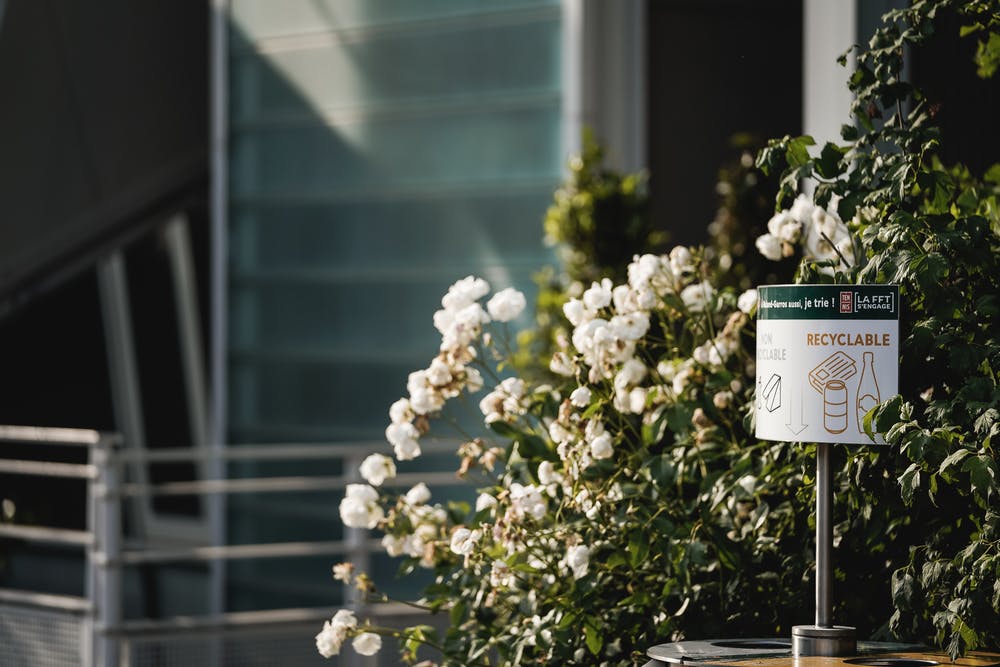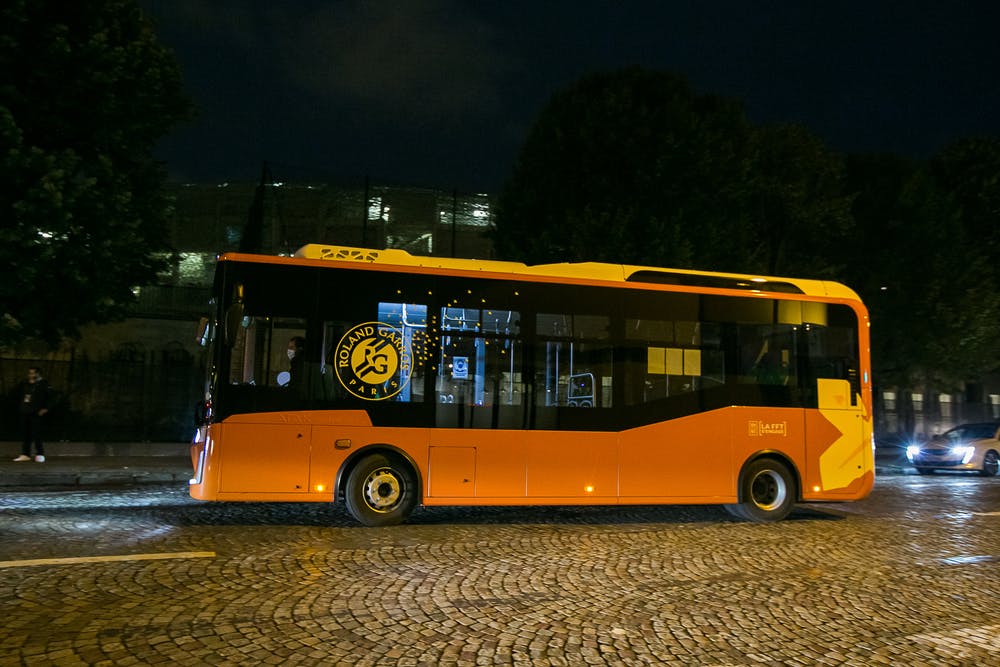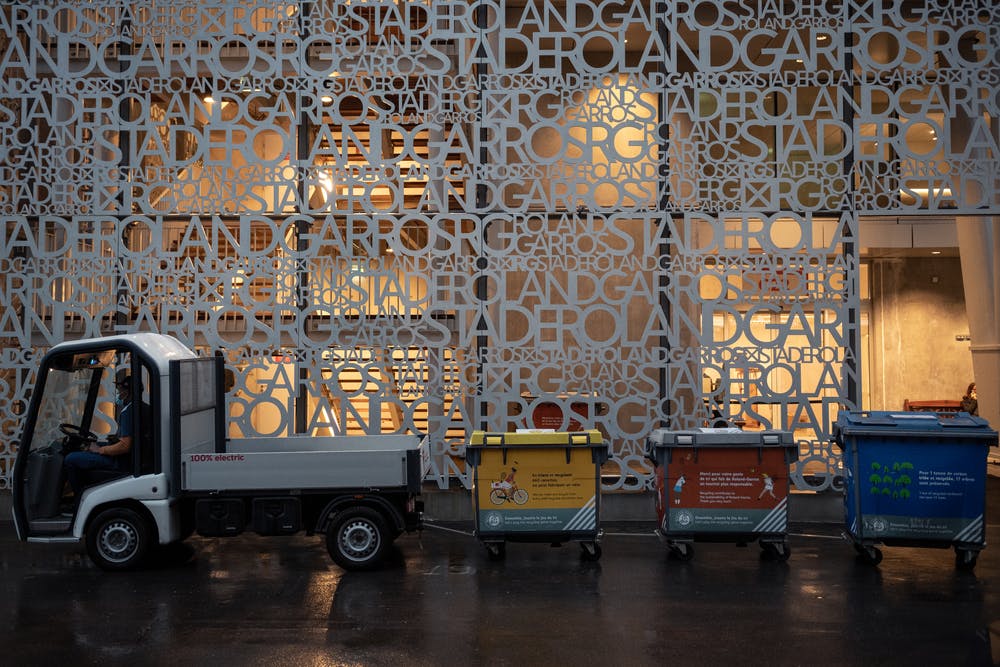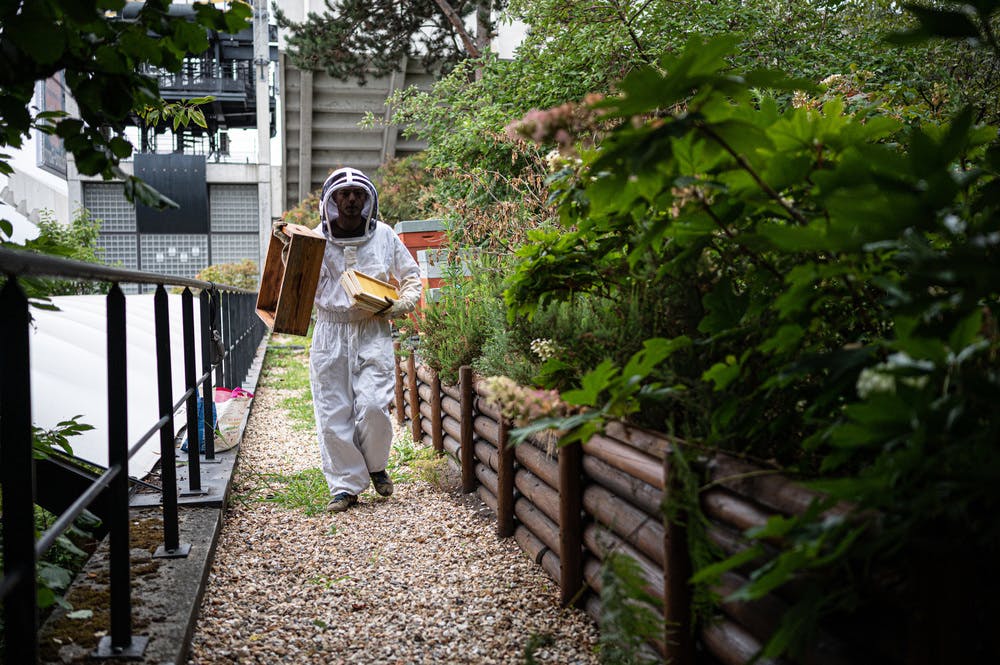In 2014, the Parisian Grand Slam became the first international French sports event to obtain ISO 20121 certification for sustainable events. In partnership with the Ministry of Sport and the WWF, Roland-Garros is also a signatory of the Charter of 15 eco-responsible commitments for major sporting events, created in January 2017.
Roland-Garros celebrates World Environment Day
On Saturday 5 June, the French Tennis Federation celebrates World Environment Day at Roland-Garros.

Committed to reducing its environmental footprint, Roland-Garros, alongside its partners, takes action in four priority areas: sustainable transport, promoting renewable energy, responsible food consumption and waste reduction and recycling. The tournament is also committed to biodiversity, by encouraging eco-contributions in support of reforestation projects. The day also serves as an opportunity to spread awareness among spectators about several actions taken.
The FFT’s commitments to environmental responsibility
In May 2014, Roland-Garros became the first international French sports event to obtain ISO 20121 certification for sustainable events. In 2020, the certification was renewed for the second time for another three-year period, reaffirming the tournament’s commitment to play an eco-responsible role for the long term.
In partnership with the Ministry of Sport and the WWF, Roland-Garros is also a signatory of the Charter of 15 eco-responsible commitments for major sporting events, created in January 2017 and based on ambitious, quantified objectives.
Furthermore, the FFT joined the Sports for Climate Action movement, initiated by United Nations Framework Convention on Climate Change (UNFCCC) and supported by the International Olympic Committee (IOC), when it was created in December 2018, calling on sports organizations and especially organizers of major international sporting events to actively contribute to the fight against climate change.
Lastly, in November 2019, the FFT signed the Paris Climate Action charter, and works alongside the City of Paris to reduce its emissions in order to meet the targets of the Paris Agreement.
Actions to support sustainable and clean transport
In support of more sustainable transport services, Roland-Garros has set up several initiatives:
- A first in 2021, Peugeot, a tournament partner for more than 38 years, has provided an official fleet that is fully electric. Two thirds of the fleet is made up of rechargeable hybrid models, and one third are fully electric. The 162-vehicle fleet produces an average carbon footprint of 22.7 grams of CO2 per kilometre and per vehicle: 7.5 times less than in 2019. This reduction in emissions demonstrates how Peugeot and Roland-Garros intend to help preserve air quality in the surroundings of the Roland-Garros grounds. By 2024, the whole fleet will be fully electric;
- Media and spectator shuttle buses are fully electric;
- Roland-Garros is taking part in the “May on Bikes” initiative, launched by the Ministry for the Ecological Transition and the Ministry of Sport, and which brings together a group of biking institutions from around France. The aim of this fun and unifying approach is to promote the use of bikes of all types, to as many people as possible, through a wide range of events. The first edition of May on Bikes runs from 1 May to 30 June 2021. It was only natural that the FFT and the Roland-Garros tournament would want to get involved in the scheme, by proposing two itineraries to bike lovers (one itinerary is available exclusively to ticket-holders, whereas the other is accessible to all), available on the Roland-Garros mobile app. They can set off across Paris to discover the city via a series of cultural stop-off points, all related to tennis and Roland-Garros;
- This year, Roland-Garros has teamed up with 02Feel, a French designer of electric bikes, to launch a Roland-Garros iSWAN edition specially designed for the tournament;
- A secure bike park is located near the stadium entrances. Capacity is regularly increased, to meet the growing user needs in Paris and the surrounding region.

Supporting the development of renewable energy
In April 2016, the FFT signed an electricity supply contract for all sites (CNE, Jean-Bouin, and Roland-Garros) with ENGIE, providing energy from fully renewable sources. This year, in addition to the mobile phone charging stations, some of which are powered by conventional solar panels, the FFT and ENGIE are trialling an innovative solution in three zones of the grounds, including on the roof of the new main entrance atrium, using flexible organic solar cells, with the aim of expanding their use at a later stage.
Promoting and implementing sustainable food around the grounds
The FFT has partnered with Yann Arthus-Bertrand’s GoodPlanet Foundation to develop a sustainable food plan with tournament caterers and restaurant operators. As part of this plan, spectators and staff will be offered more socially responsible products: quality labels, seasonal produce, ingredients with short supply chains, and so on.
The food on offer to the general public features a range of products labelled “Better for the climate”. Products with this label have a lower carbon impact, in line with the strict criteria established with the GoodPlanet Foundation.
For World Environment Day, fully sustainable food is served in hospitality areas.
Waste reduction and recycling
In addition to the waste sorting system set up in 2010, Roland-Garros carries out waste reduction and recycling action:
- Since 2014, the FFT has tackled food waste as part of an operation organised by the non-profit organisation Le Chaînon Manquant. Unsold food is distributed to non-profit organisations in the greater Paris region that support people in need. The operation would not be possible without the active support of the tournament caterer Potel & Chabot, as well as the restaurant operator Sodexo. During the 2020 Roland-Garros tournament, more than 5,300 meal equivalents were distributed.
- Bio-waste: A bio-waste collection system (for food and organic waste) has been progressively rolled out in restaurants for organisational staff, media and players, as well as in the Village. More than 24 tonnes of bio-waste were composted using worm composters after the 2020 tournament. In the space of five years, the quantity of bio-waste collected during Roland-Garros has been increased almost twentyfold, from 2.6 tonnes in 2014 to 50 tonnes in 2019.
- A greywater recycling system is installed at the Jean Bouin site, where tournament players train. It recycles and filters shower wastewater, which is then used in the changing room toilets. As a result, 24,000 litres of drinking water have been saved thanks to this system, which was designed based on the Concordia station in Antarctica.
- Reusable eco-cups have replaced disposable cups and are provided to spectators for the refundable price of €1. They are used for coffee, cold drinks, wine and even champagne. Every year, they save approximately 8 tonnes of non-recyclable cardboard waste.
- Plastic bags and packets: the FFT and its partners have banned plastic bags within the grounds. Only paper bags are used in the shops and grocery stores and their use has been reduced. In addition, the plastic “poly bags” are no longer used to wrap tennis racquets in the stringing rooms.

Roland-Garros also takes action to support biodiversity, by encouraging green contributions to support tree planting projects
Launched during Roland-Garros 2020, with the carbon footprint eco-calculator that got off the ground with the support of tournament sponsor BNP Paribas and the social business ClimateSeed, the #Tennis4Climate movement is growing in 2021 thanks to the various contributions of its partners. It will enable a tree planting project on Mont Ventoux, in the Toulourenc forest, to be jointly financed. The project is planned for autumn 2021, following an initial success thanks to Roland-Garros 2020 in the Belvédère commune forest.
The FFT has been a partner in the 1 million d’arbres (1 million trees) programme in France’s Région Sud (Provence-Alpes-Côte d’Azur) since 2020. The initiative aims to help refurbish forests in Région Sud, which has 51% forest coverage and extremely affected by climate disruption.
In 2021, Hespéride, Official Supplier of Roland-Garros, has also joined the initiative, contributing €1 for every Roland-Garros deckchair sold. This additional contribution will finance the reforestation of Mont Ventoux and help plant 277 Atlas cedars as part of the project.
The eco-calculator, developed by the social business ClimateSeed (supported by the Nobel Peace Prize winner, Professor Yunus), gives visitors an estimate of the carbon footprint produced by transport used to travel to Roland-Garros. For those watching the tournament at home, the eco-calculator can be used to calculate an estimate of their annual carbon footprint, based on their day-to-day life and consumer habits. They can then make an eco-contribution for the amount of their choice to support the reforestation project on Mont Ventoux.
For every eco-contribution, the FFT will double the sum, for a maximum amount of €10,000.
Supporting biodiversity throughout the Roland-Garros grounds
Improving local biodiversity and the ecological role played around the grounds were integral to plans to modernize Roland-Garros. A professor at France’s Natural History Museum developed an ecological management plan that was rolled out and put into operation throughout the five years that works were underway. For example, local fauna has been preserved and the outskirts of the grounds are dedicated to plants, echoing the nearby Bois de Boulogne and the parks and gardens throughout the city. Insect hotels have been set up on site to attract new and diverse range of insect species, as well as for those already present in the grounds. The insect hotels, which have been specially adapted for the species living here, join the 20 beehives that stand all year round on FFT sites including on the roof of the Club des Loges. The beehive initiative not only helps to maintain the local bee population, but because of the pollinating role the bees play, the reproduction of certain plants also gets a boost.

Building better awareness among spectators
Roland-Garros runs an awareness-raising campaign aimed at the general public throughout the entire tournament. Videos starring the players themselves are broadcast around the grounds, on the courts and across social media.
For the 2021 edition, the tournament launched the digital challenge "Roland-Garros for the Planet", which sees players, umpires, ball kids, spectators and celebrities all step up to the mark and share with the public the action they are taking to use clean modes of transport, eat sustainable food, reduce waste and help biodiversity, thereby laying down the challenge for people browsing the internet to also share how they are committed to helping the environment.
The start of the tournament saw a sustainable development quiz go online: a fun way for Roland-Garros fans to brush up on the eco-responsible actions taken by the Paris Grand Slam. Up for grabs are a pair of tickets to the 2022 Roland-Garros men's singles final.
Our commitments so far
Transport
- 92.9% of spectator journeys to Roland-Garros are made using active mobility, public transport and car-pooling.
- The official Peugeot fleet is fully hybrid or electric, and will be fully electric by 2024
Energy
- Since 2015, ENGIE has supplied the Roland-Garros complex with electricity from fully renewable sources
Sustainable food
- 52% of the food on offer to the public and 53% of the food in hospitality areas meet the sustainable food criteria set out by the GoodPlanet Foundation (certified products, seasonal produce, a wide range of vegetarian and plant-based options, etc.)
- 100% seasonal fruit and vegetables in the food offering for the general public
Waste
- 46% of waste is recycled during the Roland-Garros tournament
- 5,300 meal equivalents were distributed by the Chaînon Manquant association during the 2020 tournament
- The use of eco-cups avoids producing 8 tonnes of waste each year
- 24 tonnes of biowaste composted during Roland-Garros 2020 (50 tonnes in 2019)
- 24,000 litres of drinking water saved thanks to the greywater recycling system on the Jean-Bouin practice site
Purchases
- 89% of FFT purchasing complies with CSR criteria
 ROLAND-GARROS
18 May - 7 June 2026
ROLAND-GARROS
18 May - 7 June 2026

